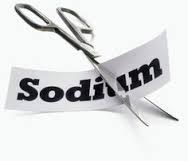Hernia repair surgeries have been performed since quite a while. Over the period of time, the technique and materials used have undergone tremendous development. Every type of hernia requires a different kind of treatment, and the best suitable procedure is selected by the surgeons based on many factors. The main goal of surgery is to provide maximum support and prevent recurrence. However, just like other surgeries, some pain and swelling after hernia surgery is commonly experienced.
Where does This Swelling Come From?
Many techniques of hernia repair are practiced. A mesh can be inserted for reinforcement. After the repair, the skin is closed in layers. Different types of sutures are used to close different layers of skin. A bandage is applied over the wound to keep it secure and dry.
The bandage comes off after a couple of days. You can notice some bruising and swelling at the site of surgery. There is nothing to worry about as it is part of the healing process. This swelling gets better in ten to fourteen days. Some pain and discomfort after surgery is expected and painkillers are prescribed to deal with it.
In case of inguinal hernia repair, men can have swelling of the scrotum and the penis can be discolored for a few days. Women can have swollen labia after inguinal hernia repair. This happens due to collection of blood and fluids which accumulate in the tissues during the procedure.
The swelling does not mean that the hernia was not repaired properly. There is a possibility that the swelling is not noticeable immediately after the surgery and only becomes visible after a few days. It can be firm or hard and usually resolves in two to four weeks.
Dealing with Swelling after Hernia Surgery
1. Stay Hydrated

It is very important to maintain adequate hydration after any surgery. Having 8-12 glasses of water daily can help to flush out the extra medications and toxins in the body. Extra fluid intake also triggers the body’s mechanism of getting rid of surplus fluid which manifests as swelling. It also helps to prevent constipation. The extra intake of water is very helpful to deal with post op swelling.
2. Keep a Healthy Diet

The body requires a lot of nutrients and proteins for adequate healing after any surgical procedure. Make sure that you eat a balanced and healthy diet. It is absolutely essential for tissue repair and wound closure. Vitamins, minerals, proteins, omega three fatty acids, iron and fiber should be part of a balanced post op diet for a speedy recovery and minimum complications.
3. Limit Your Sodium Intake

Sodium retains water and can worsen post op swelling. If you are having some swelling after hernia surgery, the best thing to do is cut down your sodium intake. That means no extra salt. The challenge here is that it is not only salt which contributes to sodium intake but a lot of processed foods and things like soy sauce, crisps and pickles are very rich in sodium and you consume a lot of sodium without realizing. Read all the labels carefully and avoid foods containing high levels of sodium.
Hernia Surgery Recovery Timeline
The recovery is generally uneventful and there are certain things that you need to keep in mind for a speedy recovery.
- 24 to 48 hours after the surgery: During this time you may experience some pain and swelling. Try to keep the dressing on for a couple of days. You can have a shower after the removal of dressing. Steri-strips are normally placed to keep the wound intact and they usually stay for ten to fourteen days. You can resume driving after two days.
- 2 weeks after the surgery: Stay active during this time but avoid any strenuous physical activity. The swelling after hernia surgery is generally experienced during this time and it also gets resolved by the end of this period. Being out and about leads to a speed up recovery and can prevent complications.
- After 2 weeks: At this stage you can return back to work if the job does not involve any heavy lifting or other physical activity that can put stress on the surgery site. You can do everything you used to do before the operation and exercise is encouraged. Certain exercises are recommended for specific types of hernia repair. In cases of umbilical hernia repair, an abdominal binder is advised for two months.
When to Call the Doctor
Wound infection is very rare but can happen after hernia repair. You need to contact your surgeon or GP urgently if any of the following is experienced after hernia repair surgery:
- Persistent high grade fever (over 38C or 100.4F)
- Increased pain or swelling in the abdomen
- Bleeding from the wound
- Severe pain that does not responds to painkillers
- Chills
- Persistent nausea or vomiting
- Shortness of breath or persistent coughing
- Increased redness around the incisions
- Reduced urine output or difficulty passing urine
